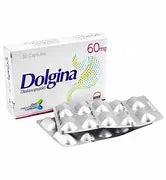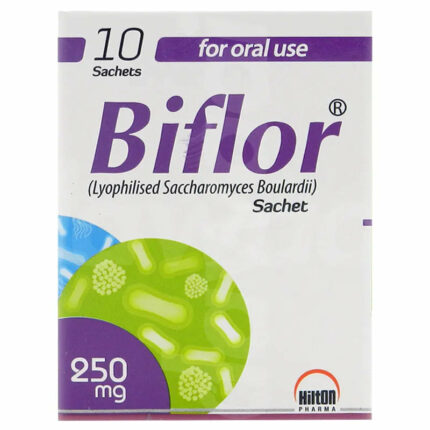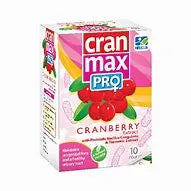Dolgina contains Duloxetine, a serotonin and norepinephrine reuptake inhibitor (SNRI). It is primarily used to relieve chronic pain conditions and manage certain mood disorders. By balancing neurotransmitters in the brain and spinal cord, it reduces pain sensitivity and improves overall wellbeing in patients dealing with long-term pain.
Primary Uses
-
Neuropathic pain (nerve-related pain, often seen in diabetes)
-
Chronic musculoskeletal pain (such as back pain, joint pain, or fibromyalgia)
-
Generalized anxiety disorder (GAD)
-
Major depressive disorder (MDD)
Indications
Doctors prescribe Dolgina for:
-
Relief of nerve pain linked to diabetes (diabetic neuropathy)
-
Ongoing muscle and joint pain that does not respond to regular analgesics
-
Depression and anxiety symptoms when associated with chronic pain
Side Effects
Some patients may experience side effects, which are generally mild to moderate:
-
Nausea or dry mouth
-
Drowsiness or dizziness
-
Constipation or stomach upset
-
Increased sweating
-
Loss of appetite or weight changes
-
Sleep disturbances
Serious but less common effects may include mood changes, liver issues, or high blood pressure.
Precautions
-
Not suitable for individuals with known allergy to Duloxetine.
-
Use with caution in patients with liver or kidney disease.
-
Should not be used with alcohol, as it may increase the risk of liver damage.
-
Inform your doctor if you are on other psychiatric or pain medications.
-
Gradual dose adjustment may be required to avoid withdrawal effects.
Warnings
-
Pregnancy: Use only if clearly needed and prescribed by a doctor.
-
Lactation: Not generally recommended during breastfeeding.
-
Driving/Operating machinery: May cause dizziness or sleepiness; avoid such activities if affected.
-
Mental health: Monitor for mood changes or unusual behavior, especially in younger patients.
Contraindications
-
Severe liver or kidney impairment
-
Concurrent use with monoamine oxidase inhibitors (MAOIs)
-
Uncontrolled hypertension
-
Known hypersensitivity to Duloxetine
FAQs
Q: What conditions does Dolgina treat?
A: It is used for nerve pain, chronic musculoskeletal pain, anxiety disorders, and depression.
Q: How should Dolgina be stored?
A: Store at room temperature (18–25°C), away from direct light and moisture. Keep out of reach of children.
Q: Does Dolgina cause drowsiness?
A: Yes, some people may feel drowsy, dizzy, or lightheaded after taking it.
Q: Can I stop taking Dolgina suddenly?
A: No, stopping suddenly may cause withdrawal symptoms. Always follow your doctor’s instructions for tapering the dose.
Doctor’s Review
Dr. Ahmed Khan, MBBS, FCPS
“Dolgina (Duloxetine) is commonly used in the management of diabetic neuropathy, fibromyalgia, and anxiety-related conditions. It works by affecting neurotransmitters involved in both mood and pain perception, making it useful where standard pain relievers are less effective. While many patients tolerate it well, some may initially experience side effects such as nausea or dizziness. Careful consideration is needed for those with liver or kidney concerns, as suitability may vary. Under appropriate monitoring, it remains a dependable option for long-term pain and symptom control.”
Disclaimer
This information is provided for educational and product awareness purposes only. It is not a medical prescription. For personal treatment, always consult a qualified physician or pharmacist.












Reviews
There are no reviews yet.